Change language:
Interview with Kosovan Ambassador Budima on the Kosovan-Hungarian relationships and many more

We interviewed Her Excellency Ambassador Gjeneza Budima, head of the Kosovan embassy in Hungary. During the interview she touched her possible Hungarian ancestors, Kosovan politics and history, the heritage of Hungarian national hero János Hunyadi, a future Budapest-Pristina flight, and the Hungarian attractions and dishes she would recommend for her friends.
Daily News Hungary (DNH): This year marks the 15th anniversary of Kosovo’s independence. What has the last 15 years been like?
H. E. Ambassador Gjeneza Budima: Last 15 years were full of hard work, reforms, state building processes, sacrifices, remarkable successes, but of course, there were also many disappointments and challenges! Kosova declared independence on 17 February 2008, after decade of talks and negotiations led by the UN and undoubtedly, after our liberation struggle, our just cause for self-determination and solidarity of the democratic world. In 2010, the International Court of Justice ruled that Kosovo’s Declaration of Independence did not violate international law or UNSC 1244.
Today, Kosova is the newest and youngest country in Europe, with 70% of the population under 35 years old. It is a progressive, pro-European and democratic state, recognised by majority, 117 of UN member states, by 22 out of 27 EU member states and by 26 out of 30 NATO member states. We are proof that democracy and economic development go hand in hand, with only last year’s 4% growth, exports +23%, foreign direct investments +47%. We keep improving our position in the Corruption Perceptions Index, the same for press freedom. We are in the first place in the Western Balkans for the rule of law.
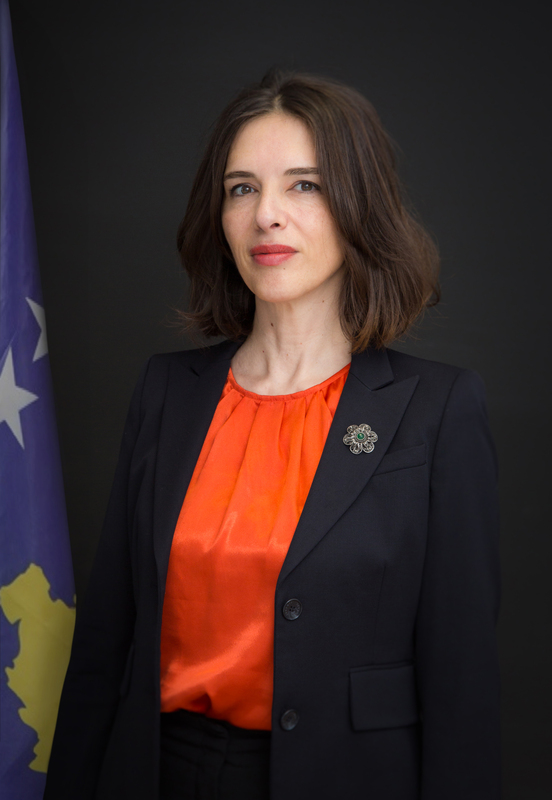
Apart from yet having to apply for a visa to travel to most of European countries, our artists, film directors, athletes, writers, journalists keep making us proud by winning internationally recognised prices. As an example, our judoka Majlinda Kelmendi is one of the most accomplished judokas in the world. She won gold in the Rio Olympics in 2016, in what was a historic moment, since it was the first Olympics where Kosova participated as an independent country. Since then, our judokas brought home two more Olympics gold medals. As Dua Lipa, Kosova’s Honorary Ambassador said, “Give us a chance, and we will excel”.
DNH: And how has your career progressed since you came to Budapest as Head of Mission?
H. E. Ambassador Gjeneza Budima: I arrived in Budapest at the end of November 2021. I was lucky that the isolation caused by pandemic was ending, hence, I had the opportunity to immediately start my duties and join in the activities and in creating contacts and expanding our circle of friends and partners. So far, I am humbled with the progress and achievements in bringing our two countries even closer.
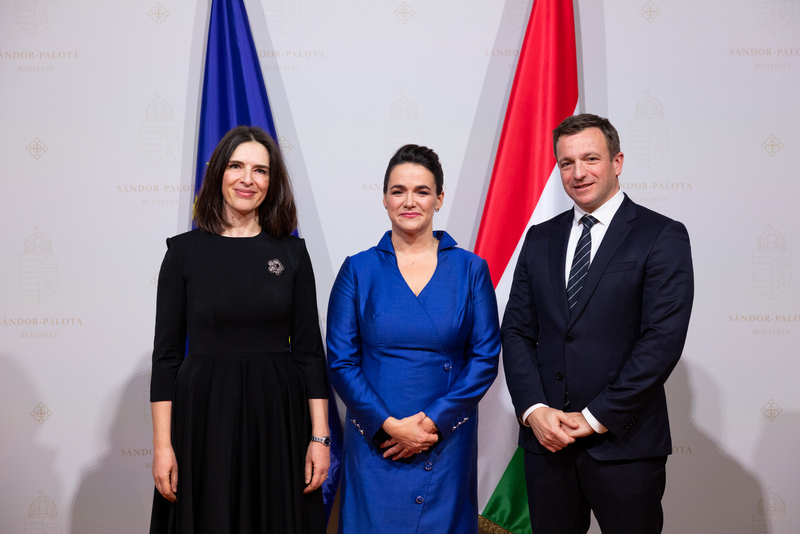
Being posted to Budapest, for me as a carrier diplomat was a privilege and yet another opportunity to grow professionally and personally while exploring and learning from such a remarkable country and people. However, as this is my first posting as a Head of Mission, I can confirm that apart from the privilege and the honour that this position brings, it also brings much more responsibilities. Being a Head of Mission of a small Embassy, I am improving also my financial, procurement and office management skills. To sum up, for me Hungary will be the Mission closest to my heart, as it the first mission I am leading and it happens to be in a friendly and exceptional country Hungary! Might be a topic for yet another interview the coincidence that my family name means Budai, as my ancestors lived and worked in Buda sometimes by the end of the 19th century.
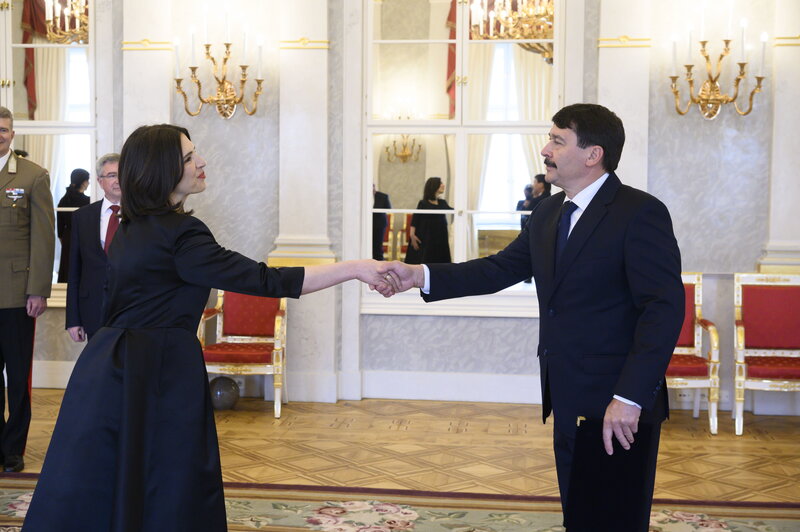
DNH: The ‘number plate’ issue have popped up in Hungarian media quite a few times recently. What exactly is it about?
H. E. Ambassador Gjeneza Budima: In 1999, when Kosova was liberated, majority of Serbs continued to have license plates of cars that were produced, issued and brought from Serbia. These license plates are an old legacy of the Milosevic regime, produced in Serbian to continue to be used only in Kosova. However, after talks in Brussels, finally, on 15 January 2018, Serbia no longer had to produce or issue such license plates, and at the same time, in September 2021, all deadlines for the use of such license plates and those of UNMIK – the United Nations Mission in Kosovo, have expired. So, since September of last year, even according to Serbia’s commitments to Brussels and the agreements, they no longer had to have these license plates. And no country, I assume not even Hungary, would accept it if a minority in the country drove with German or Serbian license plates for years.
The vast majority of Serbs in the north of our country have no problem with Kosovo license plates. A small group is instrumentalized from Belgrade. The armed people behind the barricades are not interested in human rights, but in territory. They want to protect the north of Kosovo as a lawless zone. We have destroyed six drug labs in the northern municipalities and cryptocurrency production labs that have taken advantage of the free electricity. Nobody pays electricity bills there.
Everyone, each and every citizen of Kosova, no matter of the ethnicity or any other difference, is equal and have the same rights and obligations towards the rule of law. Moreover, Serbs who agreed to convert their car plates to the legal ones were exempted from VAT, from customs and excise duty, amounting to around 5000 euros per car. We are on the side of the people, not of criminals and violators of laws or foreign regimes and interests.
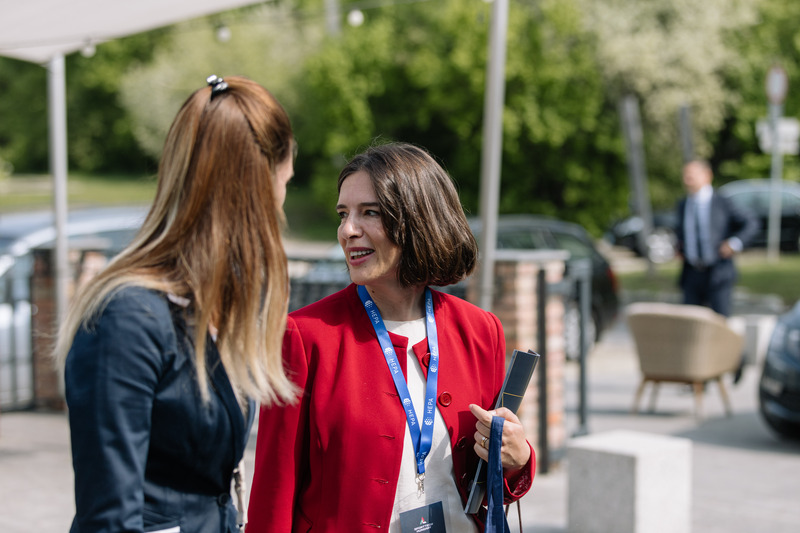
DNH: In recent years, both Prime Minister Viktor Orbán and Foreign Minister Péter Szijjártó have stressed that relations between Serbia and Hungary are at a historic high point. This certainly has an impact on relations between Kosovo and Hungary. How would you describe the relationship between the Orbán government and your government?
H. E. Ambassador Gjeneza Budima: Albanians and Hungarians share an ancient tradition of friendly and cordial relations, dating back to the time of the strategic partnership and alliance between our National Hero, Gjergj Kastrioti Skanderbeg, and the Hungarian National Hero János Hunyadi. Beyond the historical aspect, the stability of Kosova is viewed as very important for Hungary. The European integration of Western Balkans is of an utmost interest for Hungary.
Hungary has helped and continues to help Kosovo in many processes. We are working and collaborating on many initiatives and projects of common interest. While Hungarian soldiers guarantee peace in Kosovo, we are grateful that our students are learning and receiving knowledge from the best Hungarian universities, and that we have a hard-working and well-integrated diaspora here. Strengthening and intensifying relations between the two countries is our commitment and mutual interest.
DNH: Not long ago, Foreign Minister Szijjártó stated that the Hungarian government would not support Kosovo’s admission to the Council of Europe. How did your government comment on this statement? Does your country still have a chance to be granted accession?
H. E. Ambassador Gjeneza Budima: We are counting on the support of our partners and friends so that the vote for our admission to the Council of Europe (CoE), takes place as soon as possible. And we have support for the membership, but we still have to go through some procedures.
In September 2022, the Secretariat of the CoE issued a legal interpretation on the application of the Republic of Kosovo, which clearly confirms that there is no legal obstacle to the membership of Kosova as a full member of the CoE.
Citizens of the democratic states of Europe have the undeniable right to access the instruments of the CoE, especially the European Court of Human Rights (Strasbourg Court). Hence, other processes that are not the standards of the CoE cannot condition this right of the citizens of the most democratic state in the region, with extraordinary progress in the rule of law and justice reforms.
It is important to clarify that there are three stages of voting for a country’s membership in the CoE. In the first phase, the Committee of Ministers starts the membership procedure. In the second phase, the Parliamentary Assembly (PACE) of the CoE sets relevant standards and gives the recommendation for membership. In the third stage, the Committee of Ministers decides after the opinion of the PACE.
The application of the Republic of Kosovo is in the first phase. Any possible conditionality at this stage would be against the Statute of the CoE, the membership practices and the values of the organization. The Government of the Republic of Kosovo is committed joining organizations from which all our citizens have benefits. The process of membership in the CoE is irreversible and we count on our partners and friends, including Hungary, to support us so the first phase of the process passes as soon as possible.
DNH: Is there any economic cooperation between the two countries? Can you mention any successful Hungarian companies operating in Kosovo?
H. E. Ambassador Gjeneza Budima: Although we still have to succeed in convincing big investors from Hungary to come to Kosova, there are already 58 Hungarian successful companies with a capital of 42 million euros. It is important that, 15 years since the independence, the positive trend of export-import growth between Kosovo and Hungary continues even today. We are very positive that this year, the volume of trade may set a historical record and exceed one hundred million euros. Last year the volume of bilateral trade increased to 96.1 million euros.
My country is very much committed to deepen bilateral trade relations with Hungary. I am thrilled that on 2nd and 3rd February, here in Budapest, the second session of Kosovo-Hungary Joint Committee on Economic Development took place, 5 years since the first Session held in Prishtina, in 2017. A new protocol of cooperation is signed with important steps and projects to be taken for increasing not only trade exchanges, but also collaboration in many sectors of mutual interest. Important that on the margins of JEC Session, HEPA, with assistance of their sister agency Kosova Investment and Enterprise Support Agency organized a Business Forum with B2B meetings, with 40 Hungarian and 15 Kosovar companies participating, what reflects the intention to strengthen cooperation. A new MoU between KIESA and HEPA was signed too and I am very positive that we will soon have concrete results of such collaboration.
DNH: One of the keys to closer cooperation between the two countries is direct flights between the two capitals. Can we hope that there will soon be a direct Budapest-Pristina flight?
H. E. Ambassador Gjeneza Budima: In the past two years Prishtina International Airport has had one of the best performances in the region, and year by year is having an exponential growth. Last year, the number of passengers reached around 3 million according to my information. In parallel to this growth and the Government’s interest to expand the network and flow of the flights from and to Kosova, there are concrete plans and steps being taken to increase number of flights and number of new destinations as well (last year in the season a new destination was introduced to Warsaw from Prishtina). I believe that soon we can see developments in this area, including here with Budapest as well.
DNH: It is worth to note that a series of events is planned in Hungary this year to mark the 15th anniversary of the establishment of diplomatic relations between Kosovo and Hungary. Could you list the major events?
H. E. Ambassador Gjeneza Budima: Hungary is one of the first countries to recognize the independence of Kosova on 19 March 2008, for what people of my country will forever be grateful. Diplomatic relations were officially established on 27 June 2008, while the Embassy of Kosovo in Budapest began work in March 2010.
We started this festive year with a premiere screening in Budapest of Sundance Triple Award-Winner and Oscar shortlisted movie HIVE. It was a great honour to cooperate, for the first time, with Urania National Film Theatre, and bring this moving and inspiring true story to the Hungarian movie enthusiasts.
We will continue our festivities with a reception for the Independence Day for our Hungarian friends and colleagues, and yet another for our diaspora and students. We will also celebrate the establishment of first ever twining cities partnership between a city of Kosova and a city of Hungary. Moreover, also for the first time, we will have a movie shown as part of the Francophone Film Days in Budapest.
We plan in participating in various cultural and trade fairs and festivals through the year, as well as organizing a couple of cultural activities open to public with the aim to bring the 15 years old Kosova’s achievements and progresses to the Hungarian public in a sign of gratitude for their friendship and support.
DNH: What are the unique touristic highlights of Kosovo that only exist there? (atmosphere, gastronomy, prime tourist spots etc)?
H. E. Ambassador Gjeneza Budima: Kosova does not have a coast, same as Hungary, hence it took her some time, apart from being rebuild after the war, to get its deserved place as a country very much worth of the visit. Nowadays, prestigious magazines, such as National Geographic, highlight its natural wonders, rich and diverse cultural heritage, traditions, gastronomy and the unique yet ancient generous hospitality as per the old-age adage that “the house of the Albanian belongs to
God, the guest, and the master of the house”.
However, being the country with youngest population in Europe, it is the youth, their energy, creativity, easy to communicate with in various foreign languages, what impresses the tourist visiting Kosova the most. Then, as reviewed by visitors, Kosova is considered a country where one can have the best macchiato in the world, that’s maybe the coffee culture is very old or it has to do that many baristas have university degrees. Being myself from the western part of Kosova, one cannot not mention here also the natural and unique Rugova Canyon, 25km long and 1000m deep, considered one of Europe’s longest and deepest canyons.
DNH: I am sure you already know Hungary well. What would you tell your friends in Kosovo about Hungarians and Hungary’s attractions?
H. E. Ambassador Gjeneza Budima: I can say that during my first year here, I did bike between cities, villages and around lakes, walked a lot and climbed some hills. During all these travels and encounters, I can say that the people are the richness of the country, with their politeness and modesty make you feel welcomed everywhere you go. When we add to this the culture, traditions, architecture and yes, thermal baths, Hungary indeed is a great place to be.
To be very frank with you, many of my friends and family members have seen and enjoyed visiting Hungary before me, hence I learned a lot from them and I was so much looking forward to discover it myself. Kosova and Hungary are very close, geographically, historically and traditionally, and I wish this friendship will get even stronger and we will have even more Hungarians visiting Kosova and visa versa!
DNH: In terms of gastronomy, there are certainly a number of similar dishes in both countries. What are they? And what Hungarian delicacy have you tasted here that people in Kosovo would appreciate too.
H. E. Ambassador Gjeneza Budima: Oh yes, I can confirm that if you go to Kosova you will find very similar dishes to Gulyás like Gjyveq, and many rich meat dishes common to your gastronomy. Pickled vegetables like cucumbers, peppers and cabbage are a side dish that are part of our everyday meals too.
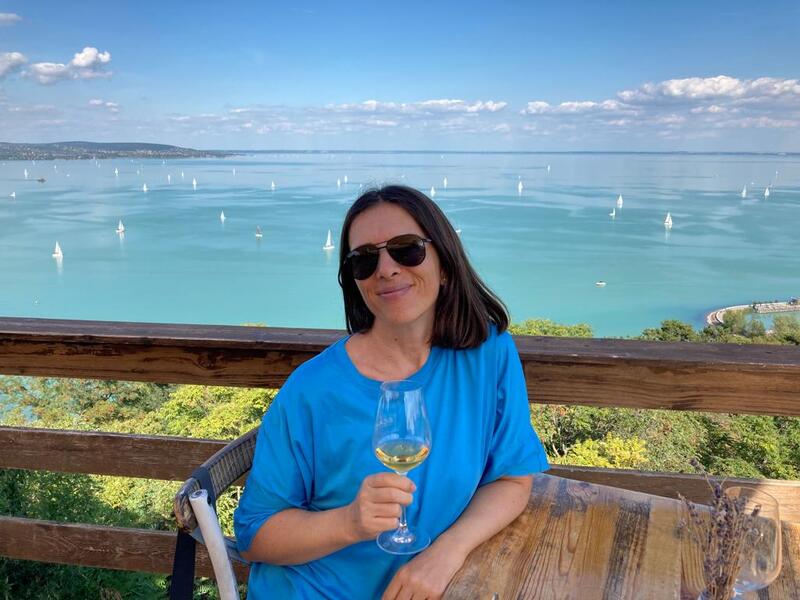
Hungarian delicacy? Kürtőskalács it is! Whoever brings Kürtőskalács to Kosova will have a guaranteed success. I just cannot resist it whenever I walk around the city streets. Its smell and taste, together with its history and tradition would be a highly appreciated by everyone in Kosova. Let’s bring Kürtőskalács to Kosova! And I would not be surprised to have it next time I am back home as the country is so vibrant and developing with such a speed that every time I go back there is something new to explore!








Tell your “excellency” that Spain, Greece, Romania and Slovakia in European Union and many countries around the world, don’t recognize her “country”. It’s Serbian territory stolen by NATO maffia.
Suksese Gjeneza!